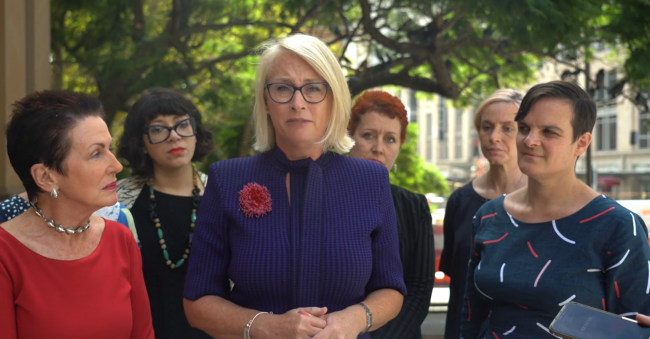The Lord Mayors of Australia’s two biggest cities have launched a call for action on the nation’s homelessness and housing affordability crisis, demanding targeted funding and systemic change.
The Mayors of Sydney, Adelaide and Melbourne last week met to call on the PM and Leader of the Opposition to introduce a raft of changes to improve housing affordability just days after an Anglicare report warned that most Australians on welfare cannot afford to live in Australia’s capital cities.
Meeting in Sydney last week, the city leaders called out inaction on homelessness and housing affordability, warning that the most vulnerable are slipping through the cracks.

“The Prime Minister talks about having a fair go and the Leader of the Opposition is talking about a fairer society and we want to say to the PM and the Leader of the Opposition you can’t have a fair society and fair go unless you’ve got a home, and we have a crisis of homelessness and a crisis of lack of affordable housing in our capital cities in Australia,” Lord Mayor of Sydney City Council Clover Moore told reporters on Thursday.
Cr Moore joined Melbourne Lord Mayor Sally Capp alongside the Lord Mayor of Adelaide Sandy Verschoor and a league of experts to call for change just days after the Anglicare report identified a “severe crisis” in affordable housing across Australia’s capital cities.
Tipping point
Cr Moore described the statistics as an indictment on society, while Cr Capp warned that Australia is reaching a “tipping point” that could soon see homelessness embedded in the nation’s fastest growing cities.
Recent ABS data has indicated that homelessness is on the rise in capital cities, with the number of homeless in Sydney increasing by 48 per cent, in Darwin by 36 per cent, Brisbane 32 per cent and Hobart 21 per cent.
Targeted funding to increase the number of social and affordable housing units in inner cities, more crisis accommodation and the appointment of a dedicated Homelessness and Housing Minister to Cabinet are urgently needed to address the growing number of Australians sleeping rough, the leaders said.
“We are really calling on the Federal Government to be able to step into this issue with all of us to be able to alleviate this chronic issue within our capital cities,” Cr Capp said.
The city leaders also urged the government to implement a national, long-term housing strategy providing more affordable housing for those from a range of backgrounds and addressing the causes of homelessness, including family violence and mental health, and to have the issue at the top of the agenda at the next Council of Australian Governments (COAG) meeting.
The leaders also put their case forward for a systemic review of welfare and Centrelink Policies – in particular, Proof of Identity practices – to ensure vulnerable people can access social security.
“Centrelink is set up to help our most vulnerable access social security and yet so many processes are barriers to our most vulnerable being able to do that,” Cr Capp said.
While councils have been working closely with the State Government, NGOS and the police to tackle homelessness, it wasn’t enough given the scale of the crisis, the leaders said.
“It’s not enough to solve the problem. Federal action, including a more responsive approach by Centrelink, is critical to overcoming the immediate rough sleeping crisis,” Cr Capp said.
Comment below to have your say on this story.
If you have a news story or tip-off, get in touch at editorial@governmentnews.com.au.
Sign up to the Government News newsletter.




Thank you to these wonderful leaders – please keep up the pressure. This issue is not going to go away and we need more people in positions of greater power to speak up for those who don’t have a voice. This is such a great show of women power – all fire to you!
I would invite the Mayors to read Labor’s policies on Housing and Homelessness. A Shorten government will make the biggest investment in community housing since WW2. We will also invest $88m for short term crisis accomodation over 2 years. Our policies have been welcomed by NGO’s and the Community Housing sector.